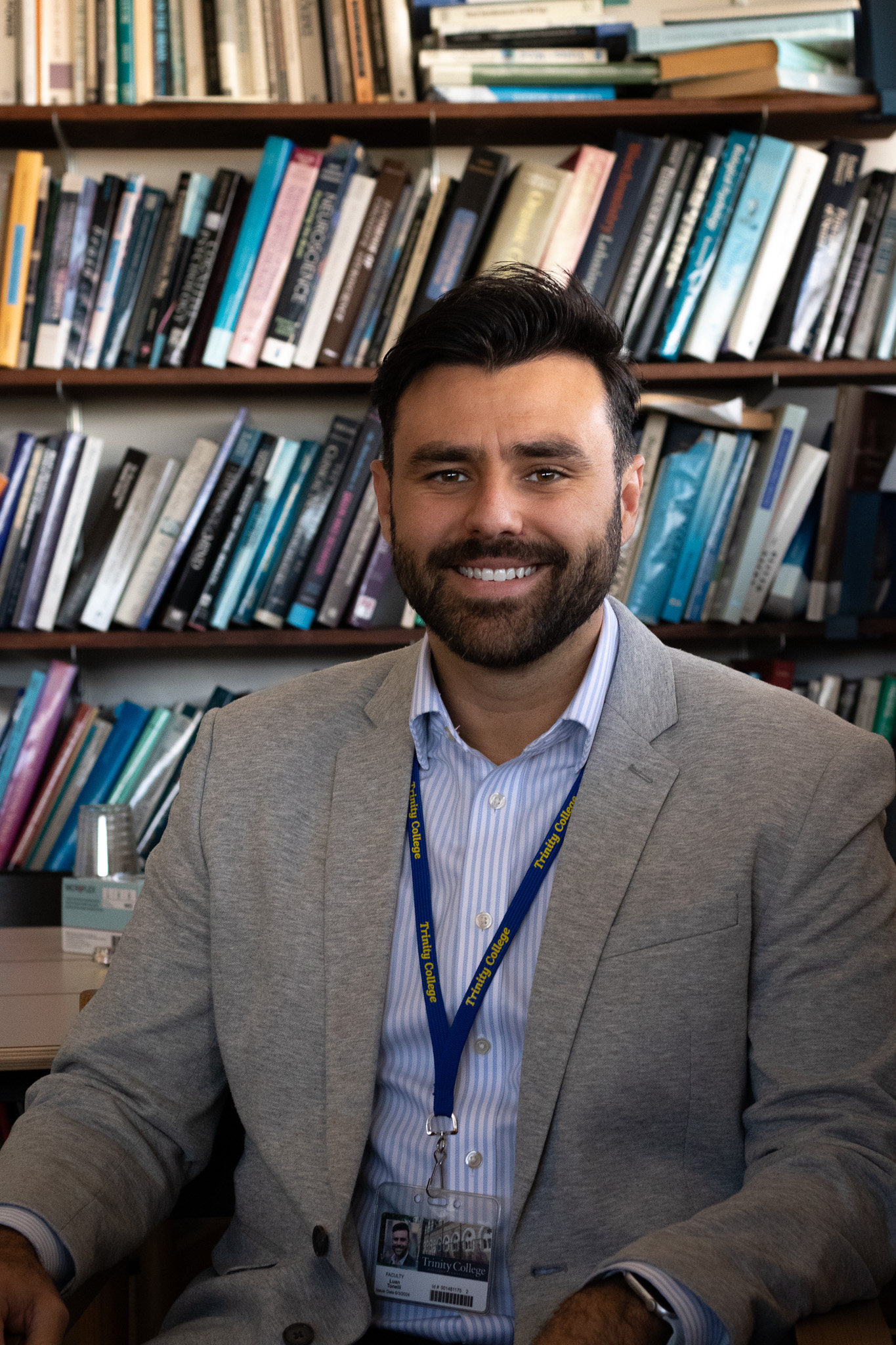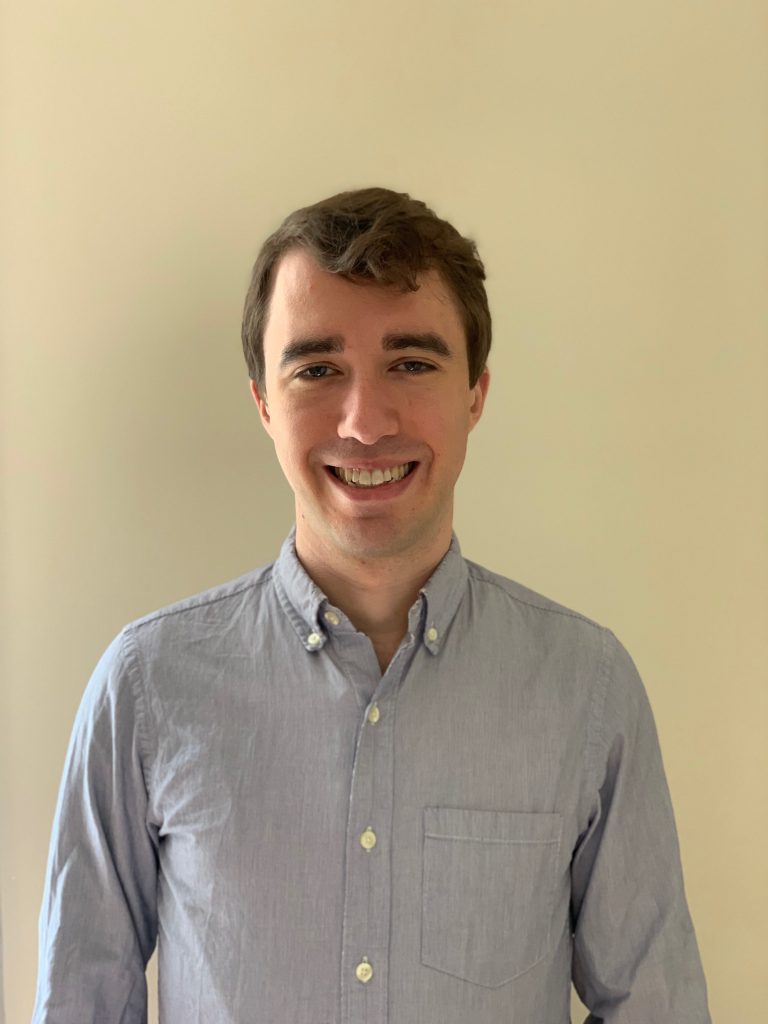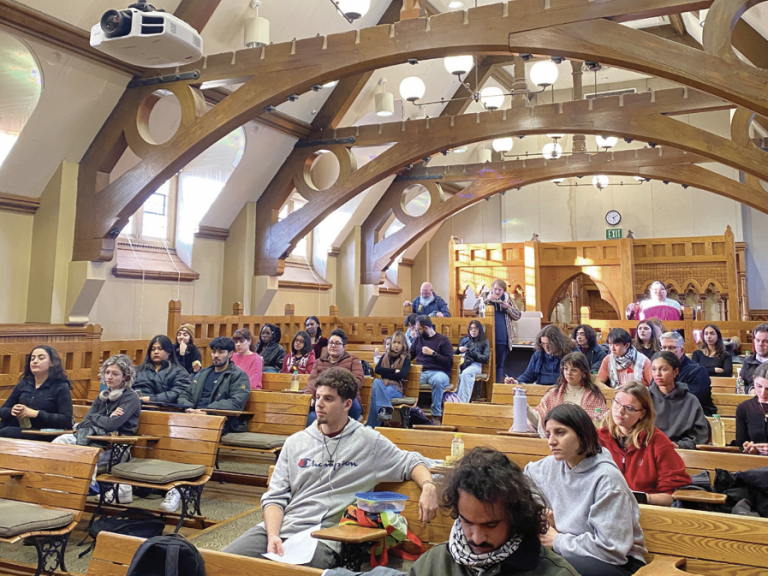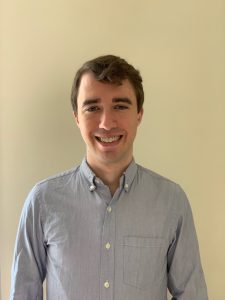Nick Cimillo ’26
Executive Features Editor
As a visiting assistant professor of psychology and neuroscience, it’s no surprise that Dr. Luan Tonelli is fascinated with the structure and inner workings of the human brain. Indeed, all three of the classes Dr. Tonelli is teaching this semester have something to do with this overlap: how alterations to the physical structure of the brain — such as drugs and neurological disorders — affect the behavior that it produces. The Tripod met with Dr. Toneilli to discuss his academic background that informed this interest, his current research he’s conducting alongside students and what he thinks of teaching at Trinity so far.
Born and raised in São Paulo, Brazil, Dr. Tonelli lived in South America for the first 22 years of his life, up until he completed his undergraduate studies at the Federal University of São Paulo. “My undergrad was in kinesiology,” Dr. Tonelli said. “I received a scholarship for an exchange program in Portugal, so I went in 2012. I did a lot of research there in different labs, mostly working with exercise physiology.” Eventually, his interest in the studying exercise transitionend into an interest in the human brain. “Eventually, I became interested in exercise in the brain,” he recalled. “That led me to a program in Germany where I did my Ph.D. in neurobiology and neuropsychopharmacology of neurodegenerative disorders, mainly Parkinson’s disease.”
Dr. Tonelli’s research in Germany was based primarily on animal models to get a better understanding of Parkinson’s disease and its potential treatments, “including music as a therapy to improve motor response in patients with Parkinson’s.” After receiving his Ph.D., Dr. Tonelli received an offer to complete a postdoc at the University of Connecticut, and he spent a year and a half working with the University’s psychological sciences lab. “I then got hired by another lab that was working only with human research,” he said. “In that lab, I worked a lot with EEG and MRI techniques. And for the past year, I’ve been at Trinity; I was hired as a visiting assistant professor of psychology and neuroscience.”
Now in his second semester at Trinity, Dr. Tonelli is currently teaching three courses: the first two being PSYC 261 – Brain and Behavior, a lecture course that he is “planning to teach every semester” — and PSYC 364 – Neuropsychopharmacology, which Dr. Tonelli describes as “a smaller, seminar-style class [with] half psychology students, half neuroscience students.” The third course is one Dr. Tonelli developed himself: PSYC 360 – NeuroFrontiers: Neurological Disorders. He said that the course is “based a little bit on my expertise and interest in research and human sciences… in [the] course, we cover a range of disorders that affect the central nervous system. We go all the way from Parkinson’s disease, Alzheimer’s, amyotrophic lateral sclerosis, spinal cord injury, stroke, multiple sclerosis — you name it.”
Dr. Tonelli cited his inspiration for creating NeuroFrontiers: “I want to prepare students to enter into the industry, or whatever they want to do after graduating. It’s a course where I have devoted time to prepare them either for academia — following a master’s or a Ph.D. — or going to industry… [after] my time in academia, I realize[d] that I was very raw to enter the industry, or be competitive for a job. And I realized [that was] because I was very strong on an academic side, but I had not developed much of my acumen to navigate into the industry and how to present myself… There’s so many things that you don’t know how to translate when you’re preparing your curriculum for a job, and that’s something I want to get the students more prepared to do.”
Since starting with human research after coming to the United States, Dr. Tonelli has taken many MRI brain scans, and has gotten his students involved in examining various different brain structures. One structure of particular interest to Dr. Tonelli is the inferior colliculus, “a structure that is responsible for auditory responses,” he said. “And curiously… [it] seems to modulate not only auditory information, but also motor response. It’s known that patients suffering from Parkinson’s disease may experience a phenomenon that’s called paradoxical kinesia, [which] refers to the ability to perform motor movements that you weren’t able to perform before.” He also cited one potential explanation for this being that it’s a response to external stimuli: “It triggers something within the brain that bypasses the brain structures that are being degenerated by [Parkinson’s] disease.”
With both auditory and motor responses potentially being conflated in the inferior colliculus, auditory stimuli are central to Dr. Tonelli’s research. “One example is music and dance,” he explained. “You see music being used as a treatment to keep patients moving. We don’t really know what pathway the brain is taking, but it seems that under auditory stimulation, Parkinson’s patients are able to just move normally. [Patients] have something that we call freezing of gait, a problem with their stride [in] which they have difficulty making turns and stopping and starting their movement. And under the condition of music, they just dance.” Dr. Tonelli and his students are examining the inferior colliculi across many brain scans to see if there’s any correlation between the structure and a person’s lived experience with sound, such as musical skill and bilingualism.
Dr. Tonelli expressed appreciation for being able to teach at Trinity. “I love [having] the ability to reach out to each [student] individually and brainstorm about their future, [or] their performance in the course,” he concluded. “[It’s] a different dynamic [from] when I was in an R1 institution like the University of Connecticut, where you have a class of 100 students. It’s a different scenario where you don’t have much personal contact [or] the ability to professionally train your students [and] share experiences with them that would help them in their career. Here, I see [personal contact] as a great opportunity to help people in their career path, progress within a course or make a wiser choice. So I think this is one of the perks of being here at Trinity: small, tight[-knit] community. It’s very helpful.”







My wife was diagnosed of Parkinson’s Disease at age 61. She had severe calf pain, muscle pain, tremors, slurred speech, frequent falls, loss of balance, difficulty in getting up from sitting position. She was put on Senemet for 6 months and then Siferol was introduced and replaced the Senemet. During this time span she was also diagnosed with dementia. She started having hallucinations and lost touch with reality. Last year, our family doctor started her on Uine Health Centre PD-5 formula, 2 months into treatment she improved dramatically. At the end of the full treatment course, the disease is totally under control. No case of dementia, hallucination, weakness, muscle pain or tremors. My wife is strong again and has gone on with her daily activities as I share this experience. I’m surprised a lot of PWP haven’t heard of PD-5 formula. we got the treatment from their website uinehealth centre . c om